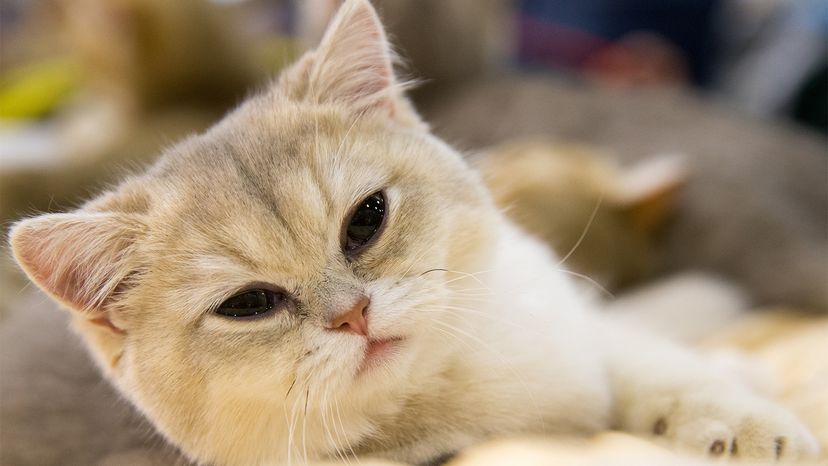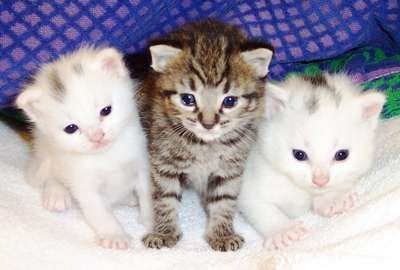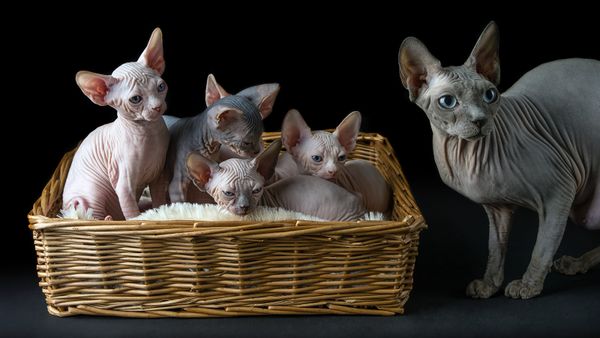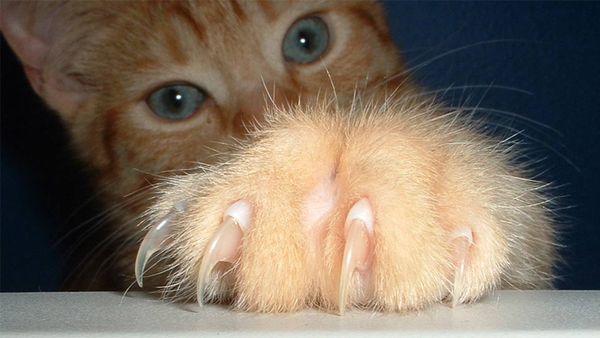British shorthairs are prone to obesity, so keepers are advised to closely monitor their food intake. A healthy adult male should weigh about 9 to 11 pounds (4.3 to 5 kilograms) when full-grown, while females can be slightly lighter. Typically, the felines have a lifespan of 14 to 20 years.
In the parlance of cat fancy, this is a "four paws on the ground" breed. Most British shorthairs dislike being picked up and if you plop one in your lap, it probably won't stay there. None of this is to say that the breed is unaffectionate. On the contrary, British shorthairs are generally polite, sweet-tempered cats. It's just that the majority prefer to cuddle up beside you on their own terms.
Although they rarely meow, British shorthairs will purr when contented. In fact, one specimen — a male named Smokey — set a Guinness World Record in 2011 by emitting a 90-decibel purr. At the time, this was the loudest verified purr ever released by a domestic cat (although another cat beat Smokey's record in 2015).
British shorthairs tend to have laid back attitudes and get along with other household pets. Plus, they're usually great with kids.
And it turns out the breed lends itself to internet memes. In 2007, the photograph of a smiling British shorthair was fitted with the caption, "I can has Cheezburger?" The picture became a cultural touchstone, spawning dozens of imitators across the net. And before the year was out, a popular humor website named icanhascheezburger.com sold for around $2 million dollars.
We're just spit-balling here, but we think Harrison Weir would be proud.



